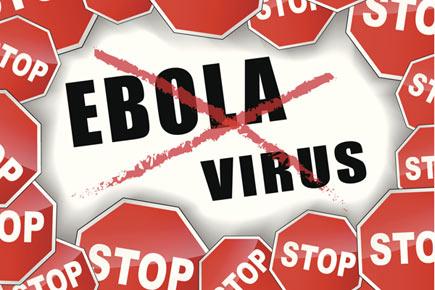The Ebola crisis has caused major disruptions in the healthcare systems in West Africa, which has led to significant decreases in vaccinations for childhood diseases

New York: The Ebola crisis has caused major disruptions in the healthcare systems in West Africa, which has led to significant decreases in vaccinations for childhood diseases.
The shortage of vaccination and allied medical support has put kids at risk for preventable diseases, researchers find.
ADVERTISEMENT
Should a large measles outbreak occur in the region, nearly twice as many people could be sickened by the disease and thousands more could die, the researchers reported.

Representational picture
For every month of interruption in the healthcare system, they say, an additional 20,000 children between the ages of nine months and five years become susceptible to measles.
"The secondary effects of Ebola -- both in childhood infections and other health outcomes -- are potentially as devastating in terms of loss of life as the disease itself," said study leader Justin Lessler from the Johns Hopkins Bloomberg School of Public Health.
"While the downstream effects of Ebola are many, we can actually do something about measles relatively cheaply and easily, saving many lives by restarting derailed vaccination campaigns," Lessler stressed.
The current Ebola outbreak began in December 2013 in Guinea and since then there have been more than 14,200 confirmed cases in Guinea, Liberia and Sierra Leone, with more than 9,500 deaths blamed on the disease in those nations.
Many healthcare facilities in the region have been closed. Many citizens have stayed away from those that are open for fear of contracting the deadly disease.
As a result, many have failed to receive routine medical care.
Measles epidemics often follow humanitarian crises, Lessler said.
The researchers estimated that prior to this Ebola outbreak there were about 778,000 children between nine months and five years old in the three nations who had not been vaccinated against measles.
After 18 months of Ebola-related disruptions to the healthcare system, the researchers estimate there will be up to 1,129,000 unvaccinated children between the ages of nine months and five years, a 45 percent increase.
In the event of a large regional measles outbreak, the number of estimated cases was roughly 127,000 before Ebola and, after 18 months of interruption, an additional 100,000 cases would be estimated to occur.
The lion's share of these cases would likely be in young children who are at greater risk of complications.
The researchers estimate that between 2,000 and 16,000 additional measles deaths could occur in such an outbreak.
The study appeared in Science.
 Subscribe today by clicking the link and stay updated with the latest news!" Click here!
Subscribe today by clicking the link and stay updated with the latest news!" Click here!







